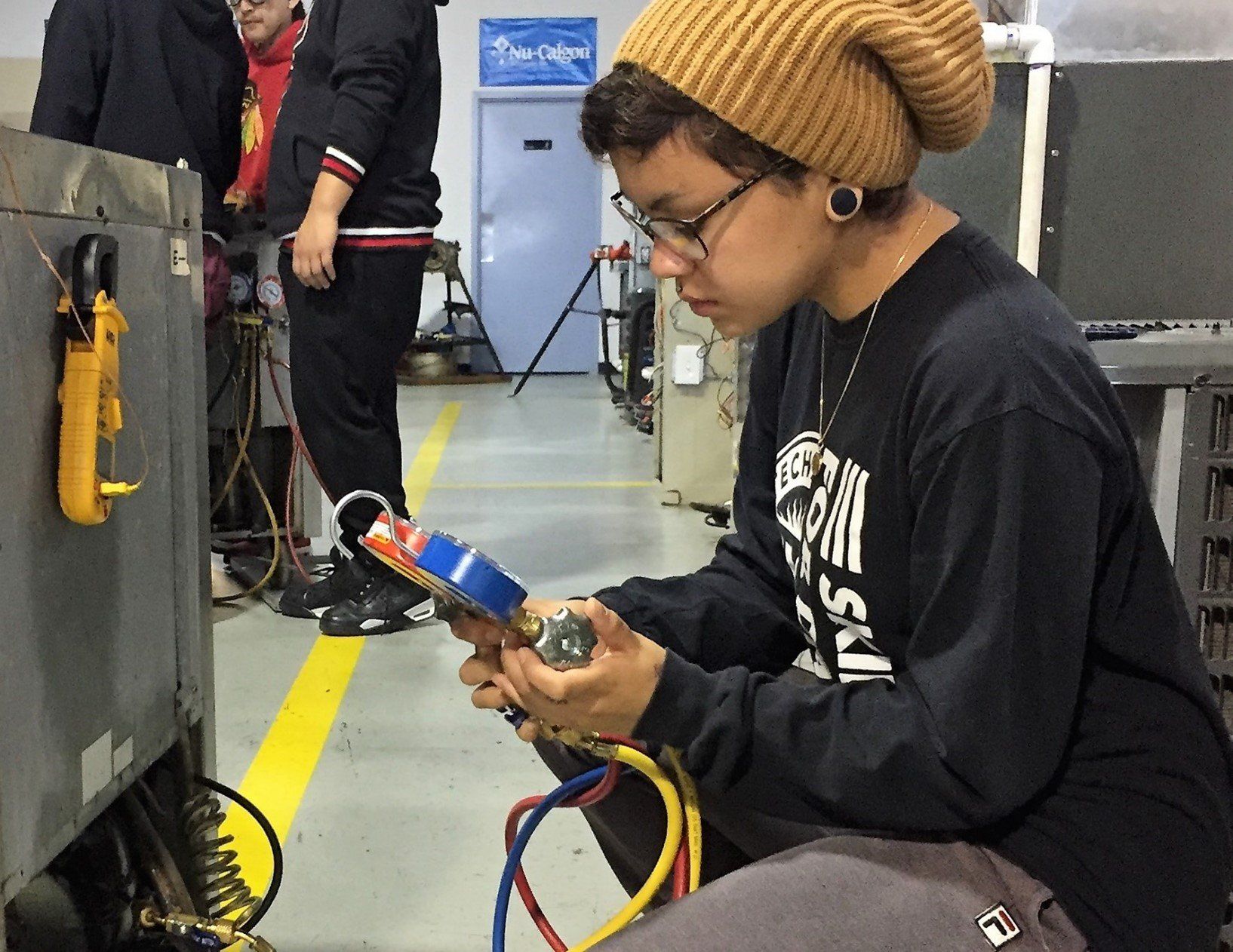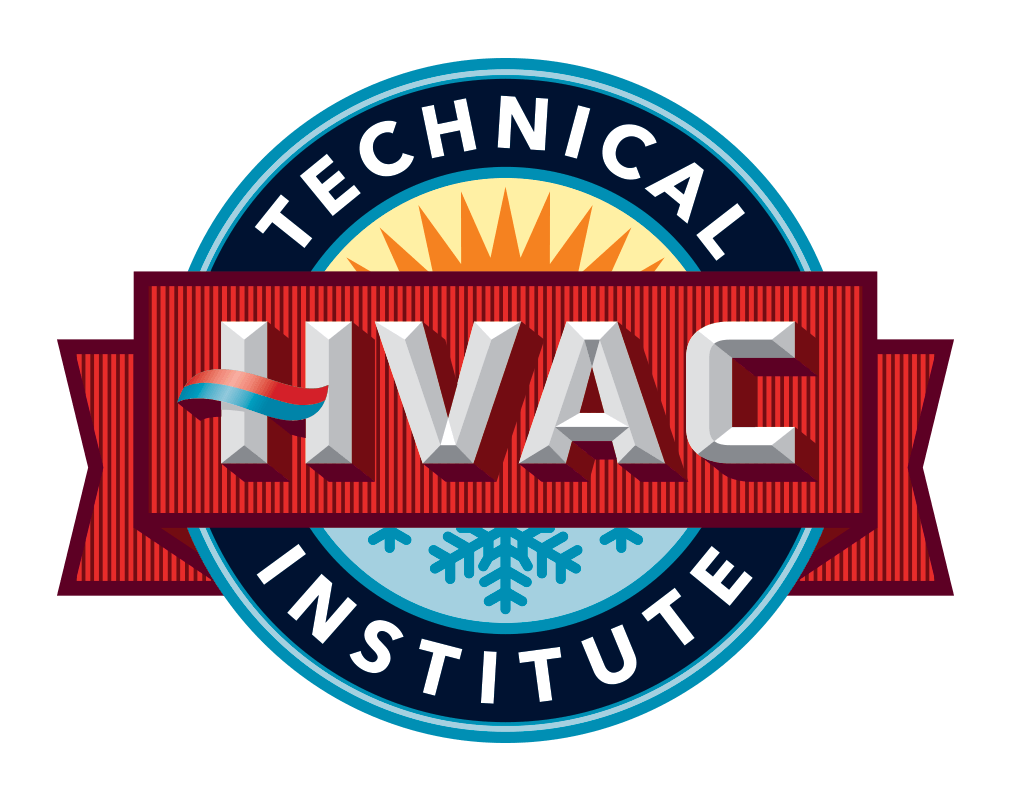FAQs About Women and the HVAC Field

What do you women need to know about the HVAC industry? Whether you're a recent high school grad, want to change careers, or are ready to re-enter the job market after years at home with your children, take a look at the top questions women have about the HVAC trade, education, and their employment options.
How Many Women Work in the HVAC Field?
While anyone of any gender can work as an HVAC technician, the heating, ventilation, and air condition field is a male-dominated market. According to the U.S. Bureau of Labor Statistics (BLS), women only made up 1.5 percent of HVAC mechanics and installers in 2021. Even though the total number of women working in this field is low, the statistic doesn't mean that you can't or shouldn't work in this growing field.
The U.S. Equal Employment Opportunity Commission's (EEOC) American Experiences versus American Expectations reports shows that between the years 1966 and 2013 the number of women working as technicians (across all trade fields) grew. This trend indicates a shift in the job market and the opportunities for women to join the technical workforce. It also demonstrates the results of the EEOC's efforts, via the Civil Rights Act of 1964, to prohibit employment-based discrimination.
Under Title VII of the Civil Rights Act, employers cannot discriminate against women in the workplace simply because of their sex. This means an employer (HVAC or otherwise) can't legally fire or not hire an employee because she is a woman.
The EEOC's statistics show that in 2014 almost 30 percent of charges filed with the agency focused on sex discrimination. Between the EEOC's and other similar laws and a shift in professional perceptions, the HVAC field is a viable choice for many women who are looking to enter a career in the skilled trades.
Why Choose the HVAC Field As Your Next Career?
The low number of women in this field shows the room for growth. As a woman, you're not a dime a dozen. Instead, you're a diamond that will stand out. Along with room for more women in this field, the HVAC industry offers plenty of benefits for new employees who are looking to change careers. Unlike many jobs in the retail or food service industries, the HVAC trades pay well above minimum wage level and employees won't rely on complicated commission structures or tips just to make a living.
According to the BLS, the 2020 median pay for HVAC and refrigeration mechanics and installers was $50,590 annually or $24.32 per hour. Not only does the pay make this field an enticing (or at the very least, interesting) prospect, it won't require years of school or a bachelor's degree to start your first job. While you will need training, you won't need to complete a four-year college program to work as a technician.
What Type of Training Do Women Need to Work in the HVAC Industry?
Women need the same type of training as men to work in the HVAC industry. This includes a high school diploma (or equivalency) and a degree from a technical, trade, or career school. These programs provide the basic skills technicians will need to assess or inspect HVAC systems, repair or install heating, ventilation, and cooling appliances, and work with these devices in commercial or residential settings.
Most HVAC programs include classroom and hands-on instruction. This blend of learning experiences can help the soon-to-be new technician to understand how HVAC systems work in the real world. You may also need to take school-based practical labs or work for a professional HVAC company as an intern or apprentice.
A post-degree apprenticeship could take three to five years to complete, according to the BLS. Apprenticeships are on-the-job types of training and may include paid experiences working under the supervision of a qualified professional HVAC mentor.
What Types of Jobs Do Women Hold in the HVAC Field?
Women work in the same types of jobs as male HVAC employees. These include repair/mechanic and installation positions in commercial or residential environments. HVAC training and career school classes will expose you to different job options. Some HVAC professionals prefer to work with specific types of machinery or in specialized areas of trade.
If you're not sure what aspect of the industry you want to focus on right now, you aren't alone. Your career school instructors or counselors can help you to learn more about specialty jobs or roles that HVAC technicians play in a variety of workplaces. While many techs decide to work for privately owned companies, some choose to become their own boss. After an initial employment period, you may have enough experience to start your own HVAC business or work as an independent contractor.
Are you ready to start a career in the HVAC field? Contact the HVAC Technical Institute for more information.

